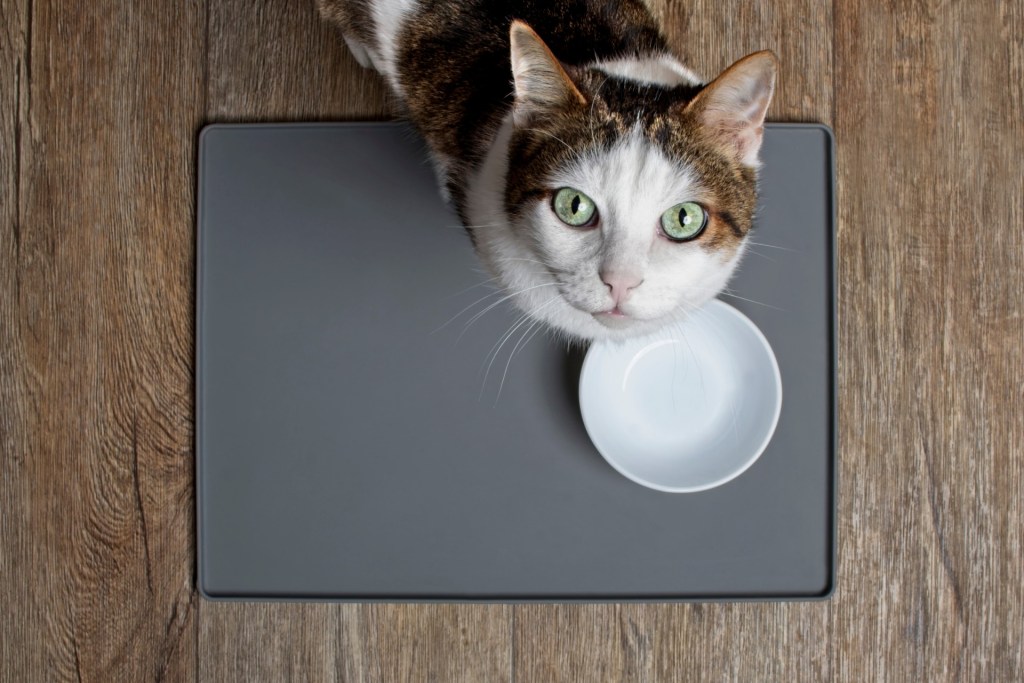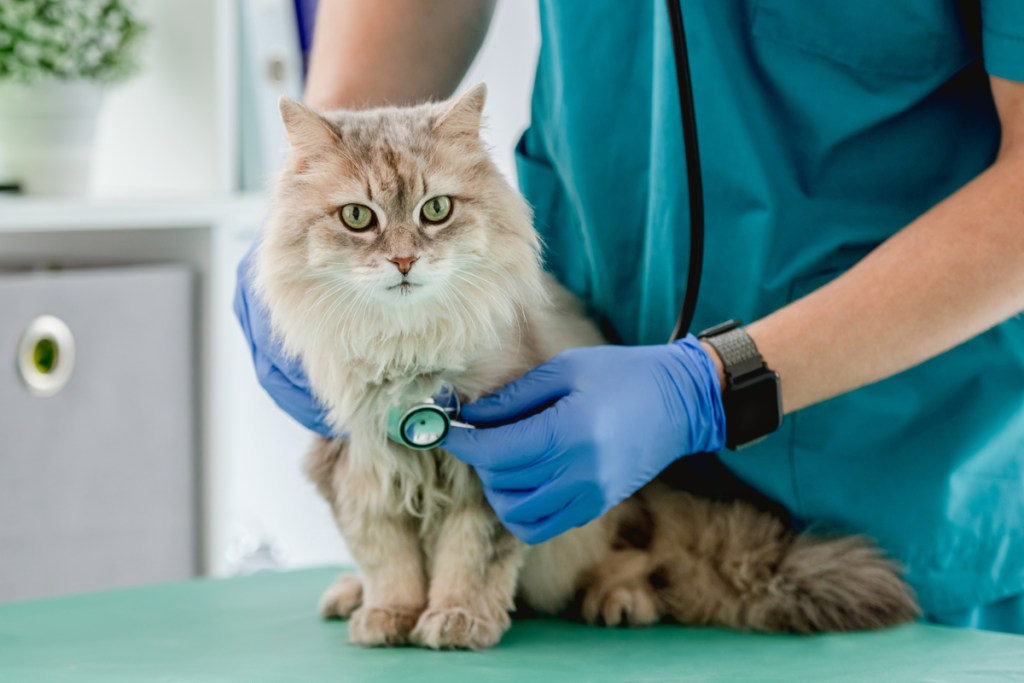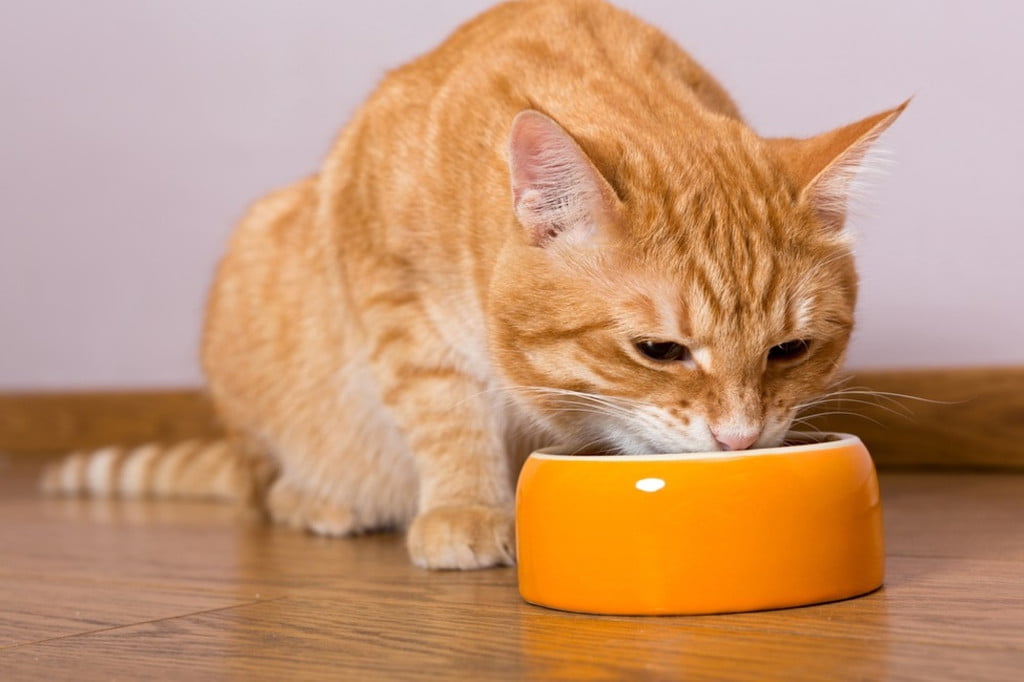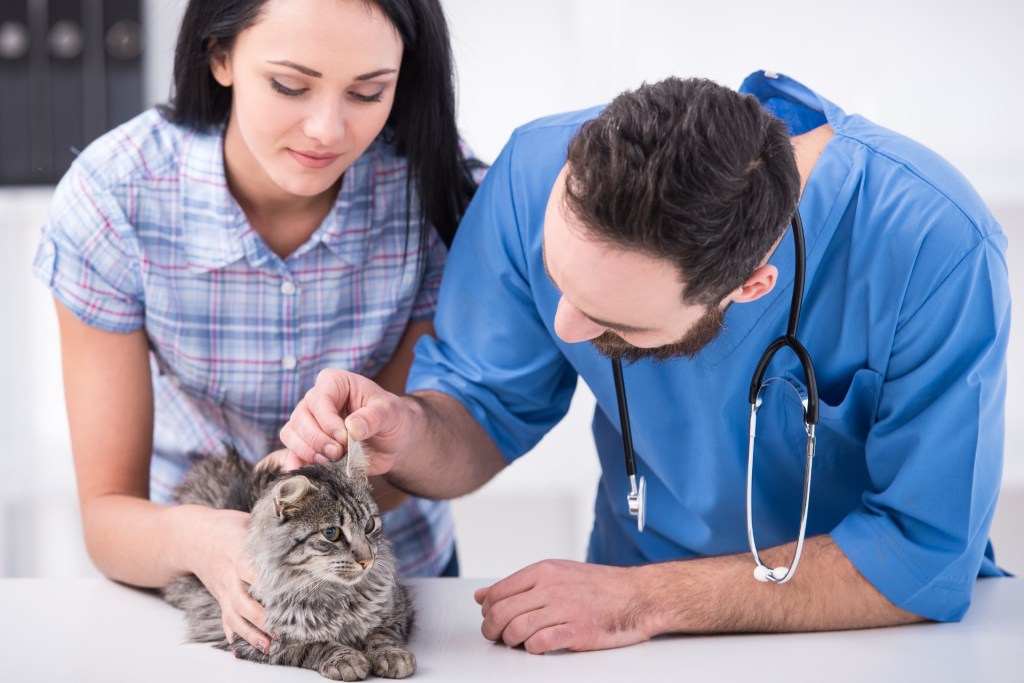When it comes to being a pet parent, two of the most important tasks you’ll take on are helping your fur baby maintain a healthy weight and feeding your feline companion nutrient-rich meals. Have you been wondering, “Why is my cat losing weight?” A variety of reasons, some benign and some life threatening, could be to blame. If you’ve noticed your cat is overeating, or even if your cat continues to eat normally but still manages to lose weight, do not delay — take them to the veterinarian right away.
Unplanned loss of weight in cats can be a symptom of several health complications that your veterinarian should check out immediately. You don’t want to take a “wait and see” approach or assume your cat will suddenly start to put on weight again. Remember, prompt treatment is essential for your cat’s well-being.

How can I tell if my cat is losing weight?
The best way to tell whether your cat is losing weight is simply by paying attention and performing weekly checks. It can be tough to know if weight loss is occurring if your cat has a lot of fur, so you’ll need to feel the sides of your cat’s body to see if their ribs are protruding or if there are any noticeable changes to their body composition. Dr. Ken Lambrecht, a veterinarian from Madison, Wisconsin, told Catster, “You can do that in combination with petting them and giving them affection, and just kind of feeling muscle mass and general mass.”

What should I do about my cat’s unintentional weight loss?
If your feline friend has been eating regular meals and even enjoying snacks but still seems to be getting lighter and lighter, you’ve probably started to wonder what’s going on.
It is essential to your fur baby’s health that they maintain a healthy weight for their age and breed. That’s why if you’ve noticed your cat suddenly losing weight — with or without changes in their appetite — you need to contact your veterinarian as soon as possible.

What is causing my cat to lose weight?
There are many medical issues that can cause your kitty to lose weight, and you should be aware of the most common causes of sudden weight loss. Let’s explore some possibilities.
Emotional issues
Some emotional causes of weight loss are stress, anxiety, and depression. If you’ve introduced other animals to your home, moved to a new home, or noticed your cat’s behavior change in other unpredictable ways, these mental-health issues might be areas for your veterinarian to address. If your cat is generally less interested in his food, feline anorexia could be the cause. All of these conditions can be successfully treated by a licensed professional.
Hyperthyroidism
If your cat has hyperthyroidism, they will urinate and drink a lot more because the condition sends their metabolism into overdrive. The most common cause is a benign tumor on the thyroid gland. It’s a very serious condition that can lead to heart disease, stroke, and blindness, so be sure to contact your veterinarian immediately if you suspect it.
Gastrointestinal issues
Gastrointestinal (GI) problems can occur in cats that have inflammatory bowel disease, infections, or allergies to foods they have eaten. If your fur baby suffers from nausea, diarrhea, and vomiting, those are all strong indicators that your cat has a GI issue.
Intestinal parasites
Many of the same symptoms — like diarrhea and vomiting — will also be present in cats struggling with intestinal parasites. These unwanted guests could be living inside your cat and causing weight loss. Because different parasites require different treatments, we recommend taking your cat to the vet if you suspect a parasitic infestation.
Organ failure
Organ failure can be a cause of weight loss that frequently occurs in older cats. As cats age, severe health conditions become more likely. Common ailments older cats suffer from include cancer and diabetes and require a proper diagnosis from your veterinarian.

What if I can’t see my veterinarian right away?
If you’re concerned about your cat but unable to see your vet immediately, try not to worry too much. Instead, keep detailed records with information about what’s happening with your cat, and then give your veterinarian a call. Explain everything, listen, and follow their advice.
Your vet may be able to make recommendations over the phone that could help your cat right away. They might still want you to come in, but at least after speaking on the phone, you can devise a plan that works for everyone.
While many conditions that cause weight loss in cats are serious, please try not to panic. Much less frightening health issues, such as a toothache or other dental problems, can also lead to weight loss. Only your veterinarian is qualified to diagnose what’s going on with your cat.
We can’t stress this enough: If you are concerned about your pet, call your vet as soon as possible. By the end of the call, you will likely feel much better than before you reached out.
In closing
When your cat is eating normally and cannot maintain their weight, it could be due to a serious issue. Treat it like one and seek medical attention as soon as possible. Though it might be stressful, talking with your veterinarian is the first step to getting your feline companion back to their healthy, happy, and vibrant self.
Editors' Recommendations
- Wondering why cats chirp? Fascinating reasons why your cat chirps at birds (and you)
- There’s a totally normal reason cats throw up after eating grass – here’s why
- When do kittens’ eyes change colors? The answer is so cool – here’s what to know
- What you need to know about crating a cat at night
- Why doesn’t my cat meow? Here are 5 reasons why your feline friend is silent



